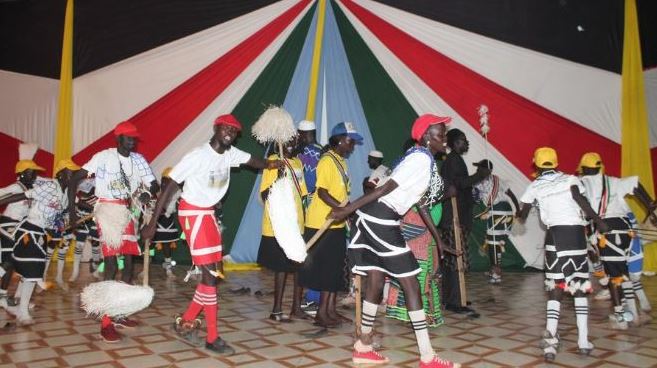
South Sudan artists feel brunt of COVID-19 pandemic

As the COVID-19 pandemic continues to batter the world, various aspects of life have been hard hit either due to the restrictive measures put in place by most governments or because of a redirection of funds and focus to the health sectors.
In South Sudan, the narrative remains the same.
Artists in the world’s youngest country have not been spared from the biting impact of the pandemic.
Traditional musician Martin Ojok described the loss that the global health crisis has brought to the country’s entertainment industry.
Before COVID-19 struck, Ojok was earning about 100,000 to 200,000 South Sudanese pounds (about 300 to 600 U.S. dollars) weekly by performing in parties and weddings. This source of income was shut soon after the outbreak was announced in the country.
The government imposed a ban on mass gatherings in an effort to curb further spread of the disease, meaning Ojok and his compatriots could not go on with their work.
“There is no work and no money. We are facing a lot of problems because we are all stranded in our houses doing nothing,” Xinhua quotes Ojok from Juba.
Many countries were forced to redirect funds to focus on the battle against the pandemic, or even dig into coffers from other sectors to prop up their responses.
While some countries have been able to set up relief funds to cushion various industries from the impact of COVID-19, South Sudan, whose economy has been struggling, may not be able to emulate such moves in their magnitude.
But Ojok is urging the government to consider doing such for artists.
“Life is really very difficult for artists at the moment. Our request to the government is that they should open up space for us to be able to perform and make a living,” he added.
South Sudan has reported 2,211 COVID-19 infections and 45 deaths, according to data from the U.S.-based Johns Hopkins University.






